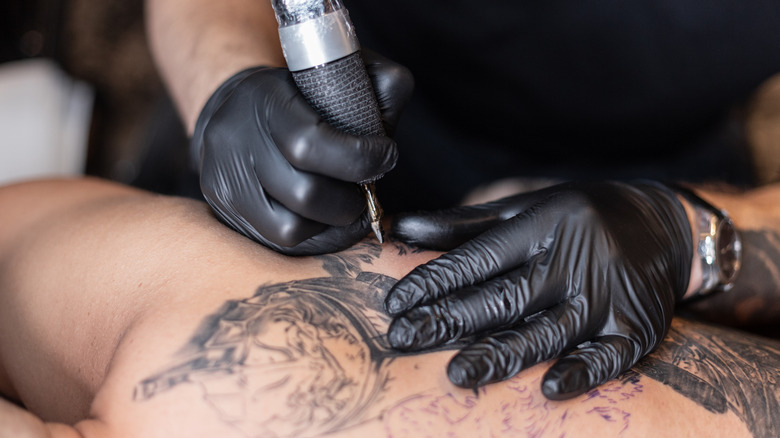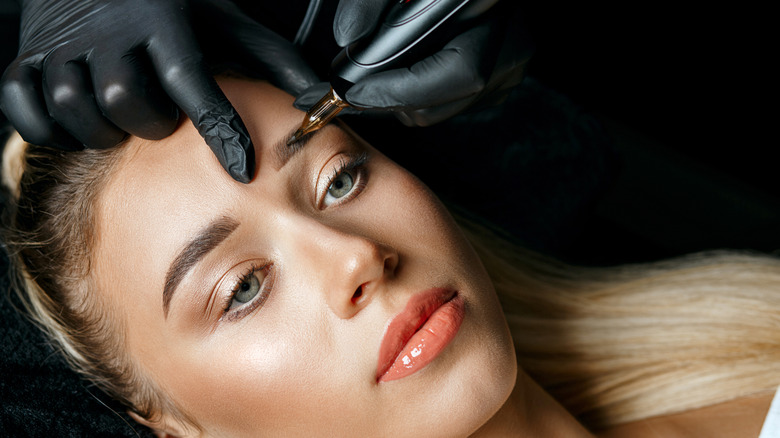Is Tattoo Ink FDA Approved?
It's not an overstatement to say tattoos are all the rage and have only grown increasingly so over the last few decades. As such, people have more and more questions about tattoo ink. After all, the ink settles into your skin and will be carried with you for the rest of your life. For example, some wonder if tattoo ink is vegan, another lifestyle choice that has grown exponentially popular in recent years. Others wonder what tattoo ink is really made out of along with how often you should get tattoo touch ups due to ink wearing off.
One of the biggest questions some have, though, is if tattoo ink is FDA approved. In the United States, the Food and Drug Administration (FDA) governs food and drug regulations, with some new item in either category having to be approved before being sold en masse in the country. While tattoo ink isn't a food or a drug, it's a substance consumed by the body in its own right. Since tattoos are so widely given throughout the country, people want to know the FDA's stance on tattoo ink, especially when tattoos are on sensitive areas such as the face, the insides of people's lips, and more.
Tattoo ink is governed by the FDA but is it approved?
As it turns out, tattoo ink is wildly unchecked and is not governed by the FDA like one might think. According to TattooHealth.org, there are many tattoo ink brands and formulas throughout the country and the world, so one can't be sure when getting a tattoo that they're receiving a standardized ink or one they've had before. They explain that chemicals in the tattoo industry have next to no oversight whatsoever.
Moreover, USA Today explains that tattoo ink isn't governed by the FDA due to the administration classifying it as a cosmetic, putting it in the same class as makeup. Because of this, they've never officially approved as an institution any tattoo ink despite governing such seemingly oddities as electronics that emit radiation and home pregnancy tests. These items aren't food or drugs but fall under the FDA's scope just as cosmetics do, but what the FDA chooses to pay attention to is entirely up to them.
According to the FDA's website, they've received alerts in the past of tattoo issues, which have included mass amounts of people experiencing adverse reactions to tattoo inks. They note that they look into these events when they occur, but their stance on officially approving any tattoo inks remains neutral. They do, however, list on their website problems that can arise when receiving tattoos, such as allergic reactions and keloid formations.
Most people receive tattoos without a hitch, which is perhaps why the FDA remains neutral on the topic. If you want to get one, follow your heart!

